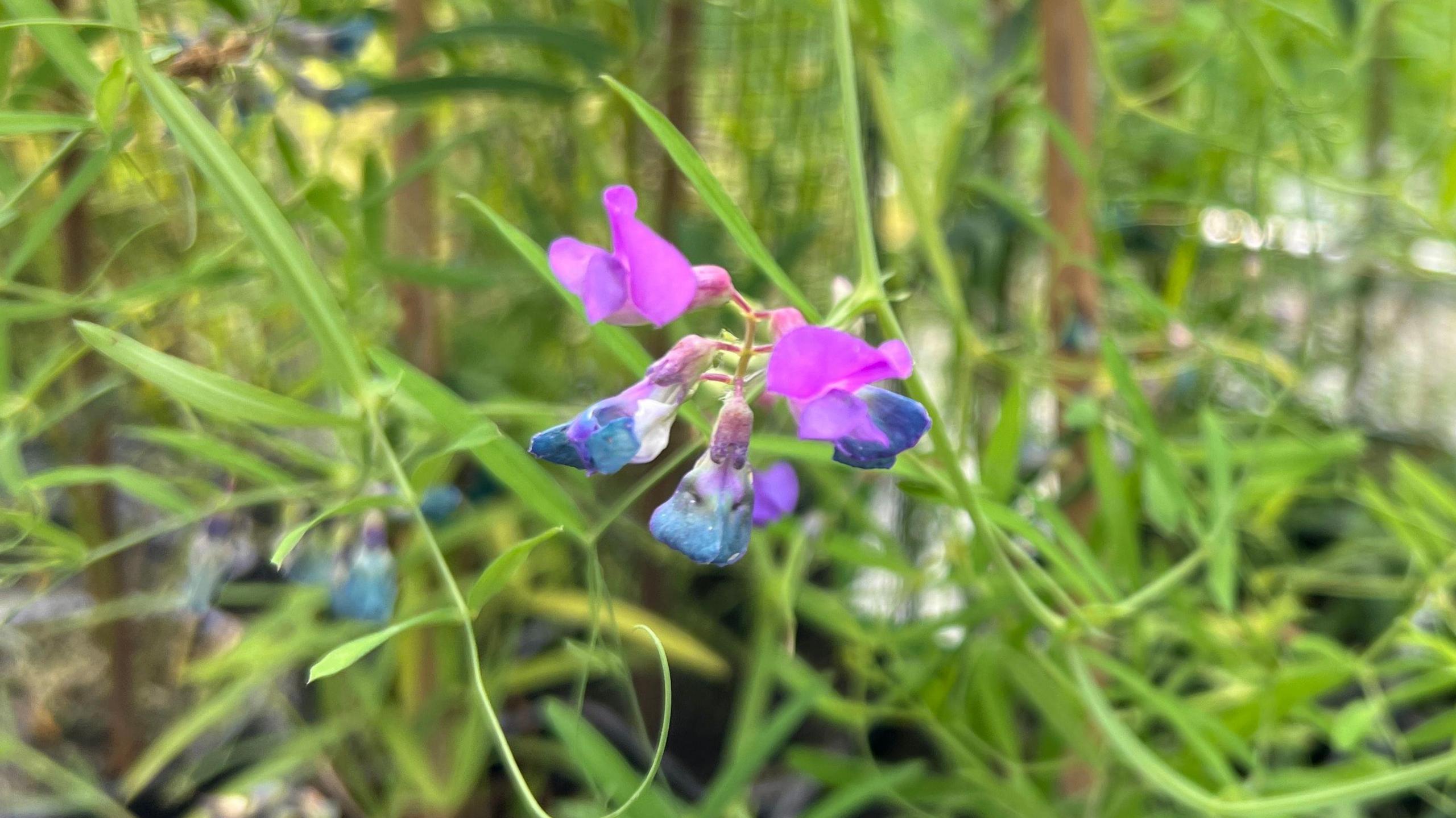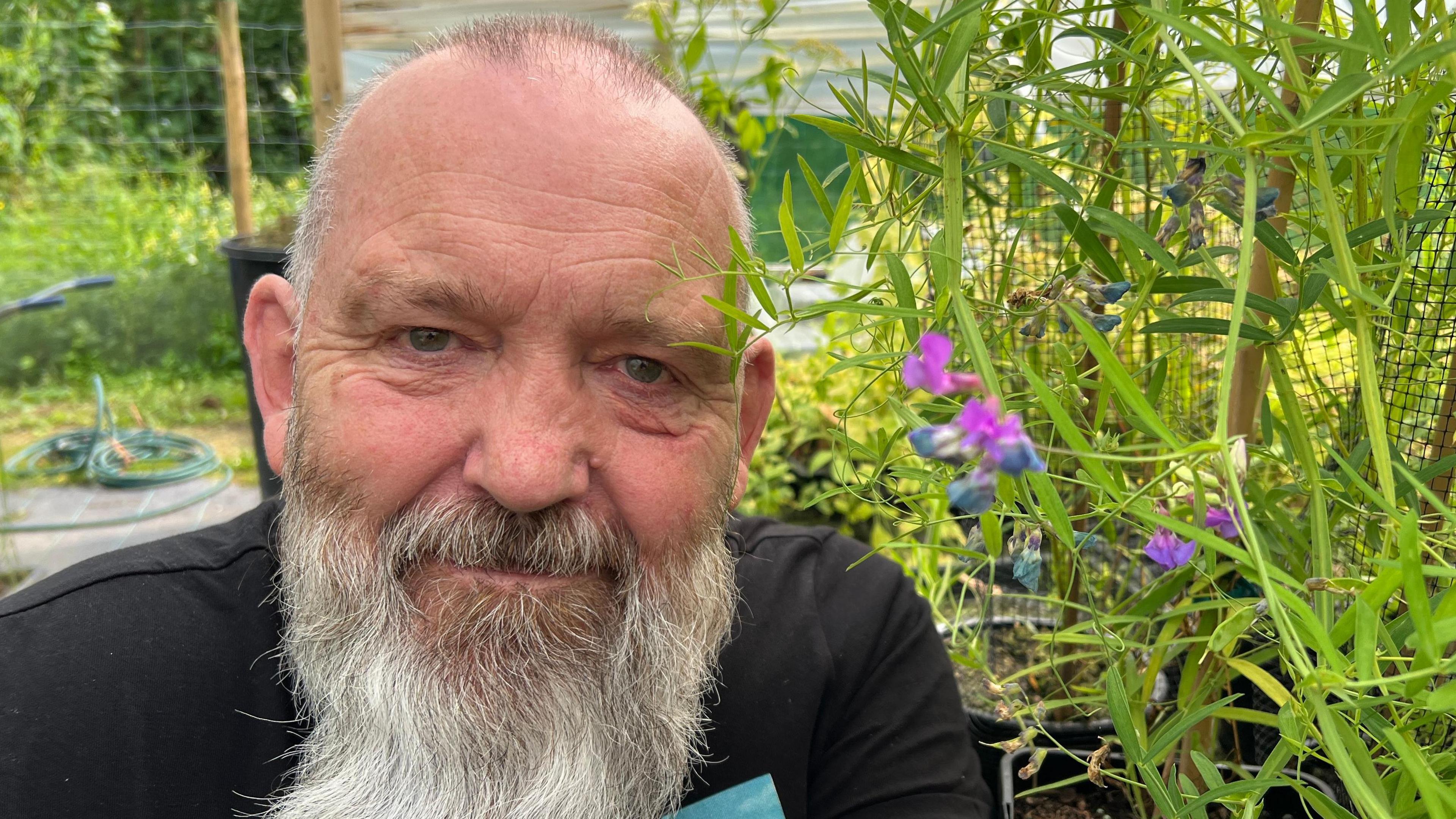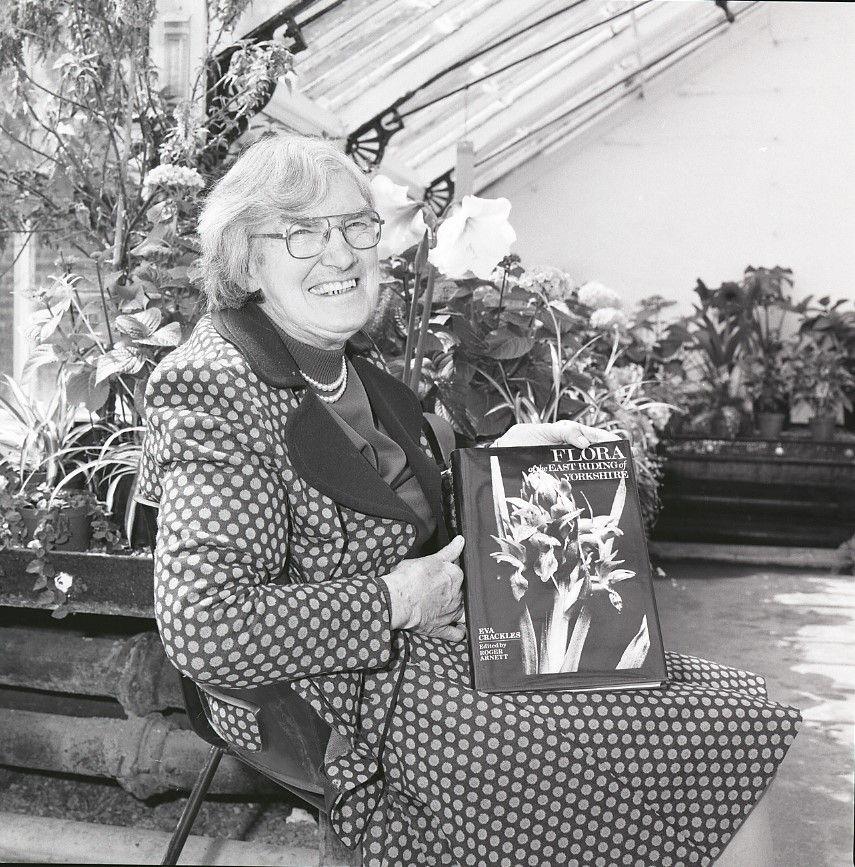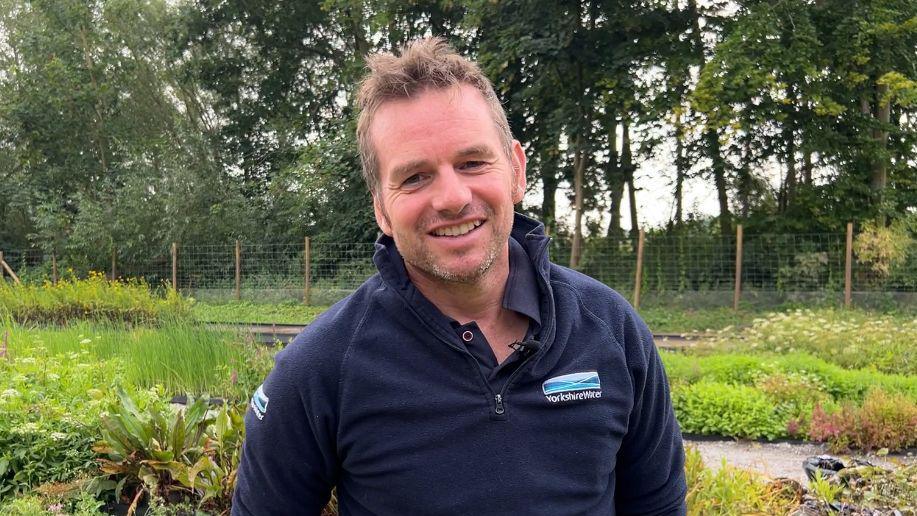Shoots of hope for critically endangered marsh pea

There are only two populations of the critically endangered marsh pea in the wild in East Yorkshire
- Published
A plant which used to thrive in East Yorkshire's wetlands could be making a comeback.
The critically endangered Marsh Pea has been discovered in two isolated spots in the county by an enthusiastic plantsman and volunteer at Tophill Low nature reserve.
John Barnard successfully germinated the seeds he gathered and hopes to reintroduce the plant in areas where it thrived historically.
His work is part of a Yorkshire Water project to repopulate wetland areas with native species.

John Barnard has successfully grown 100 plants in a polytunnel at Tophill Low Nature Reserve
Mr Barnard gathered seeds at Hornsea Mere and Pulfin Bog near Beverley and through experimentation discovered they needed 120 days in a fridge before they germinated.
He said warmer winters could be one of the reasons the plant was failing to thrive.
"There are two remaining populations in East Yorkshire and that's it.
"If they ever die out because of climate change or drying out then we lose the whole species."
It was the work of botanist Eva Crackles that led Mr Barnard to the remaining marsh pea plants.
Her book, The Flora of the East Riding of Yorkshire, published in 1990 was the culmination of four decades of painstaking research and record keeping.
She was awarded an honorary doctorate from the University of Hull for her work walking the wilds of East Yorkshire to record its plant life.

Eva Crackles was born in Hull in 1918 and spent her life recording the area's plants
The marsh pea cultivation is part of an ambitious plants programme at Tophill Low Nature Reserve.
A previously unrecorded species of greater water parsnip has been propagated from seed.
They have also recently found the red-listed lesser water plantain growing wild in East Yorkshire.
One thousand of the plantain seeds have been collected and sown in the hope they can eventually be planted along the River Hull valley.
Tophill Low Reserve warden Richard Hampshire said: "We have grown all these plants on to try and benefit the environment both at Tophill Low and the wider Hull valley so that's why we've invested in the new polytunnel and wet beds and all the facilities to do all this great stuff."
The project is keen to encourage more people to volunteer to assist with wetland rewilding.

Richard Hampshire said Yorkshire Water had a statutory duty to enhance the environment
Follow BBC East Yorkshire on Facebook,, external X (formerly Twitter), external and Instagram, external. Send your story ideas to eastyorkslincs.news@bbc.co.uk , external